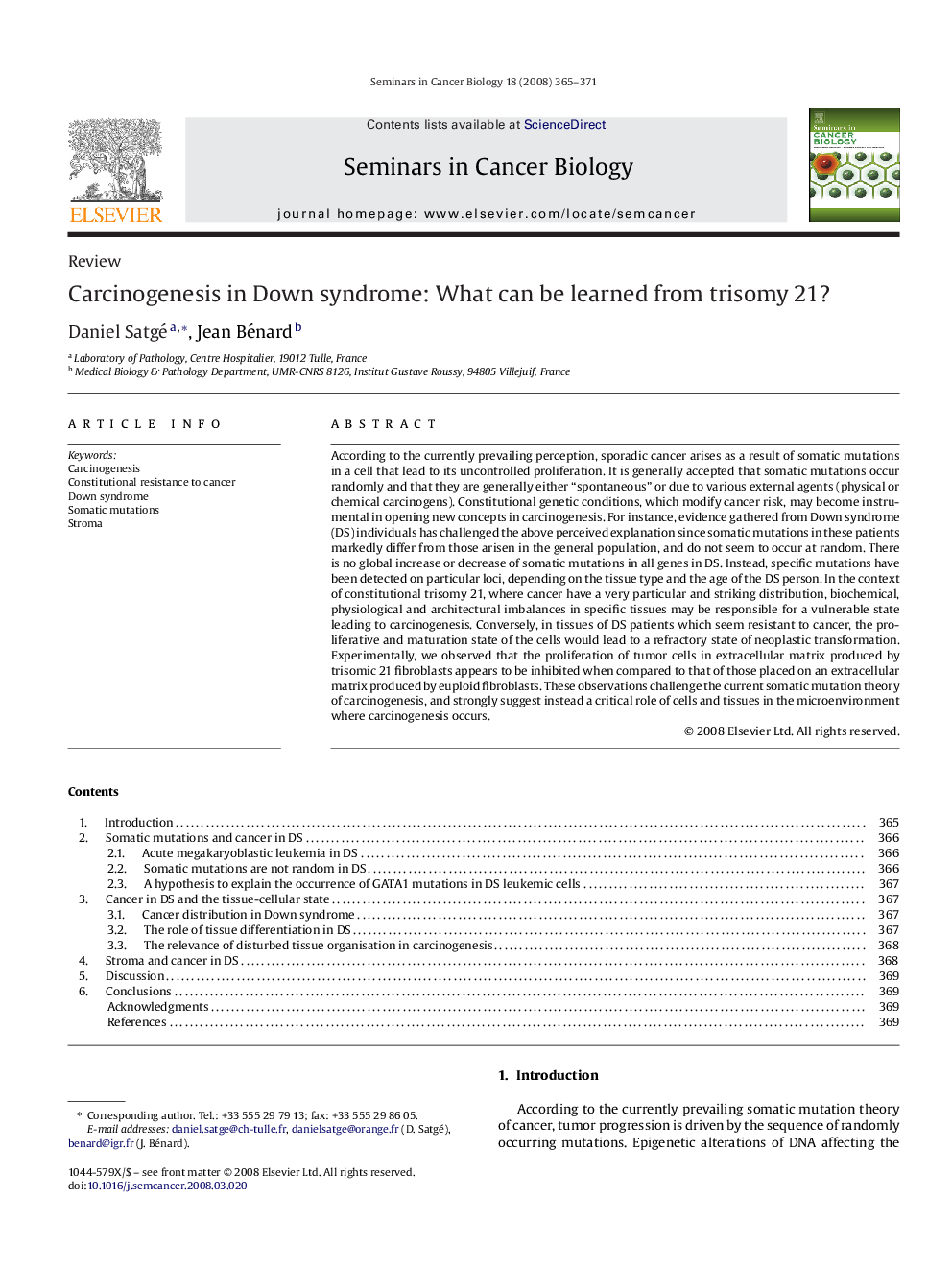| Article ID | Journal | Published Year | Pages | File Type |
|---|---|---|---|---|
| 2024056 | Seminars in Cancer Biology | 2008 | 7 Pages |
According to the currently prevailing perception, sporadic cancer arises as a result of somatic mutations in a cell that lead to its uncontrolled proliferation. It is generally accepted that somatic mutations occur randomly and that they are generally either “spontaneous” or due to various external agents (physical or chemical carcinogens). Constitutional genetic conditions, which modify cancer risk, may become instrumental in opening new concepts in carcinogenesis. For instance, evidence gathered from Down syndrome (DS) individuals has challenged the above perceived explanation since somatic mutations in these patients markedly differ from those arisen in the general population, and do not seem to occur at random. There is no global increase or decrease of somatic mutations in all genes in DS. Instead, specific mutations have been detected on particular loci, depending on the tissue type and the age of the DS person. In the context of constitutional trisomy 21, where cancer have a very particular and striking distribution, biochemical, physiological and architectural imbalances in specific tissues may be responsible for a vulnerable state leading to carcinogenesis. Conversely, in tissues of DS patients which seem resistant to cancer, the proliferative and maturation state of the cells would lead to a refractory state of neoplastic transformation. Experimentally, we observed that the proliferation of tumor cells in extracellular matrix produced by trisomic 21 fibroblasts appears to be inhibited when compared to that of those placed on an extracellular matrix produced by euploid fibroblasts. These observations challenge the current somatic mutation theory of carcinogenesis, and strongly suggest instead a critical role of cells and tissues in the microenvironment where carcinogenesis occurs.
